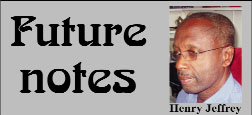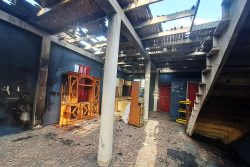“What is to be feared is not so much the immorality of the great as the fact that immorality may lead to greatness. In a democracy, private citizens see a man of their own rank in life who rises from that obscure position in a few years to riches and power … They are therefore led, and often rightly, to impute his success mainly to some of his vices; and an odious connection is thus formed between the ideas of turpitude and power, unworthiness and success, utility and dishonor.” (Alexis de Tocqueville (1945) “Democracy in America” Vol. 1, Vintage, New York.)
I do not make it a habit to call anyone corrupt as I believe that such a personal accusation should be based upon justiciable evidence. Nevertheless, somewhat similar to the citizens portrayed above by de Tocqueville, in the course of conversation I might have to admit that given what I know of a given individual – his family and origins, his normal remuneration and normal expenditure, etc. – the fact that he has been able to acquire an inordinate amount of wealth in what may be considered a short amount of time suggests that something untoward has taken place. I suppose that like me, when it is claimed that a significant number of persons believe that corruption is widespread, it is based upon a similar type of knowledge. Therefore, if we are to proceed sensibly, we need to expose and properly assess this perceived condition.
 I concluded last week’s article by suggesting that although all parties now agree that corruption is an important problem that needs to be addressed, we may not have a common understanding as to its precise nature, and of course, if we do not have such a common understanding our policy prescriptions are like to be conflicting and thus suboptimal.
I concluded last week’s article by suggesting that although all parties now agree that corruption is an important problem that needs to be addressed, we may not have a common understanding as to its precise nature, and of course, if we do not have such a common understanding our policy prescriptions are like to be conflicting and thus suboptimal.
I believe that to be relevant to our condition, we must differentiate two types of corruptive situations, one of which may be amenable to normal managerial interventions and the other of which is structural and cannot be so relatively easily checked and possibly reversed.
My feeling is that although if it reaches a tipping point, even what we may call the normal corruptive practices of society can become very problematical to erase and that we should immediately attempt to tackle it by establishing normal and innovative anti-corruption institutions, unless the structural element of this problem is put to rest, our parliamentary system and our progress will remain paralysed. The remainder of this article will deal with this structural difficulty.
Where there is a widespread perception of corruption it usually means that the political process itself is widely viewed as fundamentally corrupted; disrespectful of the rules of honest living and thus allowing the condition outlined by de Tocqueville above to become rampant among the citizenry. It is the national political process that must lead the fight against corruption, which can only be perceived to have become widespread if that process has been, for whatever reason, deficient in its efforts.
Corruption tends to become structural after a period of authoritarian rule. By which I mean a period of rule during which a government has been in office for a considerable period and does not believe that it can easily be removed. After all, the most effective check on governmental abuse – the ultimate audit in the political process – is the possibility of a periodic removal from office and the resultant accountability for one’s stewardship. Regardless of how well-intentioned a regime may have been when it comes to office, when it finds itself in a context which makes its tenure almost permanent, it gradually becomes profligate. This occurred in the PNC and PPP/C eras: the former depended on rigged elections that effectively disenfranchised the population and the latter because it depends on an ethnic majority: a situation which, if considered carefully, also disenfranchises that majority!
In the eyes of the citizens, corrupt regimes also lose their capacity to be reformist. So that when the current regime speaks of corruption in the City Council, cricket administration, etc. the citizens view this as the pot calling the kettle black!
When the problem has become structural it cannot be removed by normal managerial tools since any effort to meaningfully make the society open and transparent will not only cut off the lucrative sources upon which many people have come to rely but will also jeopardise past acquisitions and even threaten personal safety.
Today, no presidential and other immunities can prevent a new state from perusing the real and perceived crimes of former leaders and offers of safe passage havens are also no longer particularly attractive. The only secure alternative open to a besieged autocratic leadership is to continue in power; to remain relevant in the political process of their country. The examples of Egypt, where the entire Mubarak family, so recently powerful and feared, is now in prison on, among others, charges of massive corruption, and the struggle to the death of the vicious Assad regime in Syria are good cases in point.
Thus the solution to a structural problem is not unusually found in social revolutions such as those taking place in the Middle East but it may also result from sensible thinking such as that exhibited by Nelson Mandela after the fall of apartheid and, to a lesser extent, Cheddi Jagan after the elections of 1992.
There was absolutely no doubt that, given what the Apartheid regime did to Mandela and his party, the African National Congress could have taken – and perhaps without Mandela would have taken – a more vengeful path. Had it done so, it is anyone’s guess what we would have made of Mandela and his South Africa today!
The PPP/C may have been somewhat more boxed in by the essential bi-communal nature of our society and the fact that it did not control the bureaucracy and security forces, but the point is that while it has gradually attempted to entrench its supporters in the strategic locations of society, it sensibly did not attempt to become threatening to the PNC elite whom it had perennially accused of all manner of crimes.
Thus these two options – social revolution and sensible compromise – exist, but I believe that discourse and creative thinking is the way forward. However, more importantly, our country cannot afford these decades long quarrels and waste of time and therefore, the present discourse must also seek to establish governance arrangements that will allow all of us to live and build cooperatively.






